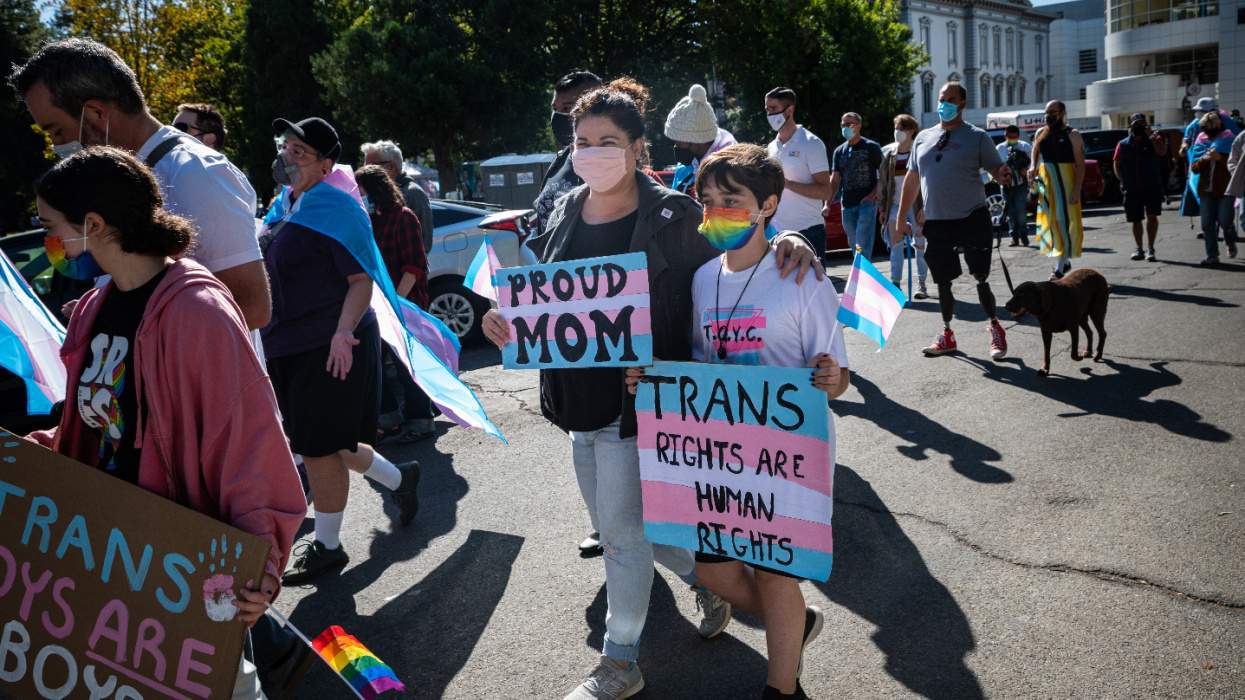For the first time, a transgender inmate has successfully relied upon the federal Prison Rape Elimination Act for legal redress, receiving $5,000 in damages Thursday for the violation of her rights while she was held in a Maryland prison.
Administrative Law Judge Denise Oakes Shaffer ruled in August that Maryland's prison system violated the rights of Sandy Brown, a transgender woman, when she was placed in solitary confinement for 66 days and tormented by guards who sexually harassed her by taunting surveiling her while she showered and, in one instance, told her to commit suicide, according to an Associated Press investigation.
"She told me I should kill myself, and that I'm not a woman, that I'll never be her," Brown recounted in the AP report about Sergeant Dawn Halsey, a corrections officer who tormented her.
Last year, Brown was sent for evaluation to the Patuxent Institution, a temporary mental health facility for incarcerated individuals in Jessup, Md., but was held there long after her mental health screening was completed.
"They put me in solitary confinement just because I am transgender," said Brown in a statement released Thursday by FreeState Legal, a nonprofit advocating for low-income LGBT Marylanders, which represented Brown in her landmark suit. "I spent 24 hours a day in solitary and was only allowed one hour of recreation during the entire 66 days I was there. They didn't see me for the human being I am. They treated me like a circus act. They gawked, pointed, made fun of me and tried to break my spirit."
Shaffer's ruling certifies that several clear violations of PREA and federal law occurred, notes ThinkProgress. When Brown was strip-searched upon arriving at Patuxent, a female officer searched her upper body while a male officer searched her lower body, in direct violation of PREA regulations that expressly forbid cross-gender strip searches. Brown's 66 days in solitary confinement -- reportedly against orders from the warden that Brown be placed in general population -- also violated PREA's mandate that such assignments not exceed 30 days. Furthermore, prison officials contravened PREA's zero tolerance policy toward sexual abuse and harassment.
"What our client went through is really degrading conduct that really shakes the conscience. The unfortunate thing is that I don't think her experience is exceptional for transgender inmates," Brown's attorney at FreeState Legal, Jer Welter, told ThinkProgress. Author Zack Ford pointed to Bureau of Justice Statistics that confirm Welter's supposition, noting that "40 percent of transgender people in U.S. prisons from 2011 to 2012 reported experiencing sexual assault or abuse by either another prisoner or staff."
The AP report also noted that Shaffer's ruling revealed that corrections officers "created a hostile environment" for Brown; that Patuxent's witnesses overwhelmingly declared that the facility lacked training in policies for humanely engaging with transgender inmates in violation of federal law; and, as Shaffer wrote in her ruling, that even "the prison's security chief did not know the federal law had specific requirements regarding transgender inmates."
As a result of Brown's suit and Shaffer's ruling, Maryland correctional facilities have already initiated policy changes for the treatment of transgender inmates. All facilities must follow a uniform policy whereby transgender individuals may choose the gender of the officer who searches them, and officers will undergo training within the federal law and PREA's mandates to ensure affirmative, respectful engagement with transgender individuals.
"As far as we know, this is the first case in the country in which a transgender person been able to obtain individual relief, including monetary compensation, for violations of the national PREA standards," stated Rebecca Earlbeck, staff attorney at FreeState Legal, who served as Brown's co-counsel. "We believe this case creates a framework for enforcing the national standards that transgender people who are incarcerated in other states and their advocates can follow to help to ensure that others do not have to endure the pain and trauma Ms. Brown experienced."
FreeState Legal's Welter stressed to ThinkProgress that Brown's case highlights the great benefit of legal counsel, noting that most prisoners who either suffer mistreatment or launch internal complaints are rarely represented by attorneys.
As such, much work remains to make sure that trans inmates are treated respectfully and humanely. The Associated Press noted that Maryland does not track its transgender prisoners, making the identification and treatment of such individuals that much more difficult to ascertain.















Charlie Kirk DID say stoning gay people was the 'perfect law' — and these other heinous quotes
These are some of his worst comments about LGBTQ+ people made by Charlie Kirk.